Few documents have had as profound and enduring an impact on global governance as the Universal Declaration of Human Rights (UDHR). So central to the mission of the United Nations that the declaration is sealed, alongside the UN Charter, in the cornerstone of the UN Headquarters in New York City.
The declaration is not just a set of principles but a living framework that informs the UN’s work at every level, it is both a blueprint and a call to action. Its resonance extends beyond its 30 articles, shaping such landmark treaties as the Convention on the Rights of the Child and international laws that safeguard the rights of asylum seekers, refugees and the stateless.
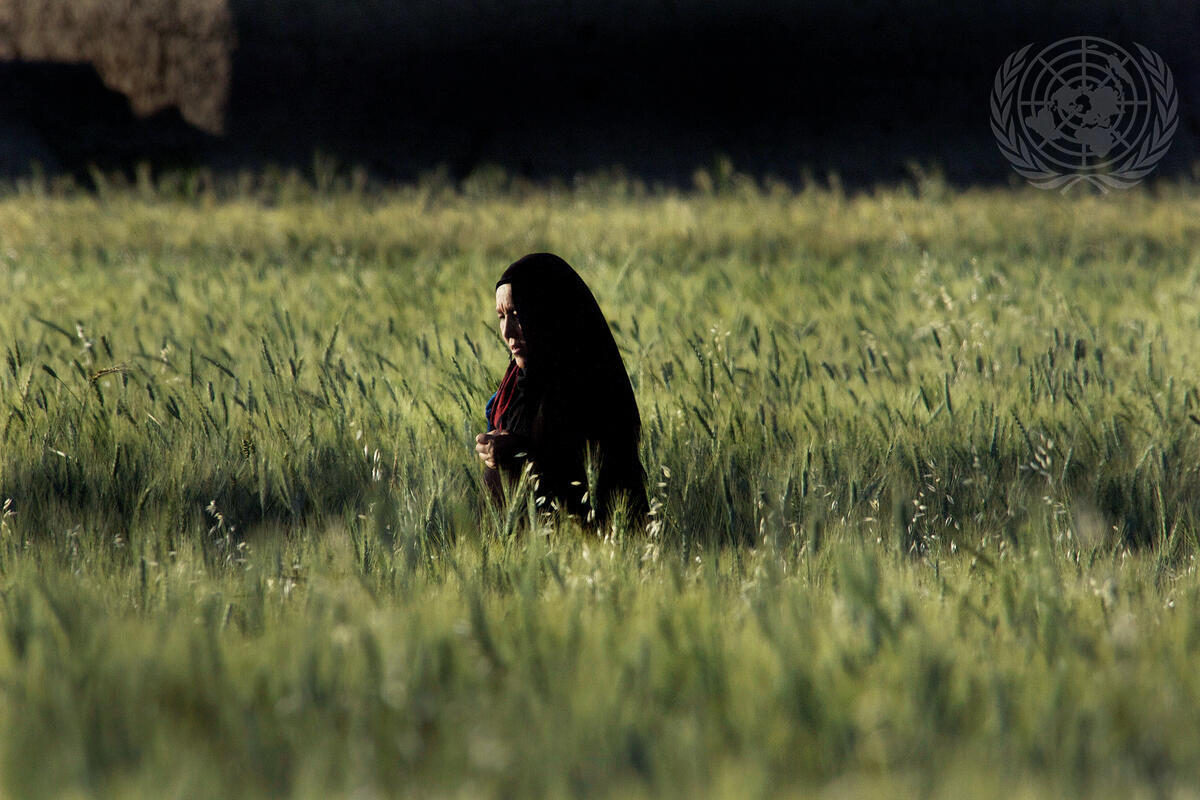
Hard-won human rights can be lost, a reflection on the state of women’s rights in Afghanistan where girls are now limited to primary-level education and women are banned from most professions.
“Previous generations fought and even died for
human rights. The right to vote. The right to protest.
The right to work, and to equal pay for women.
The right to be seen, heard, and counted.”
~UN Human Rights Chief, Volker Türk
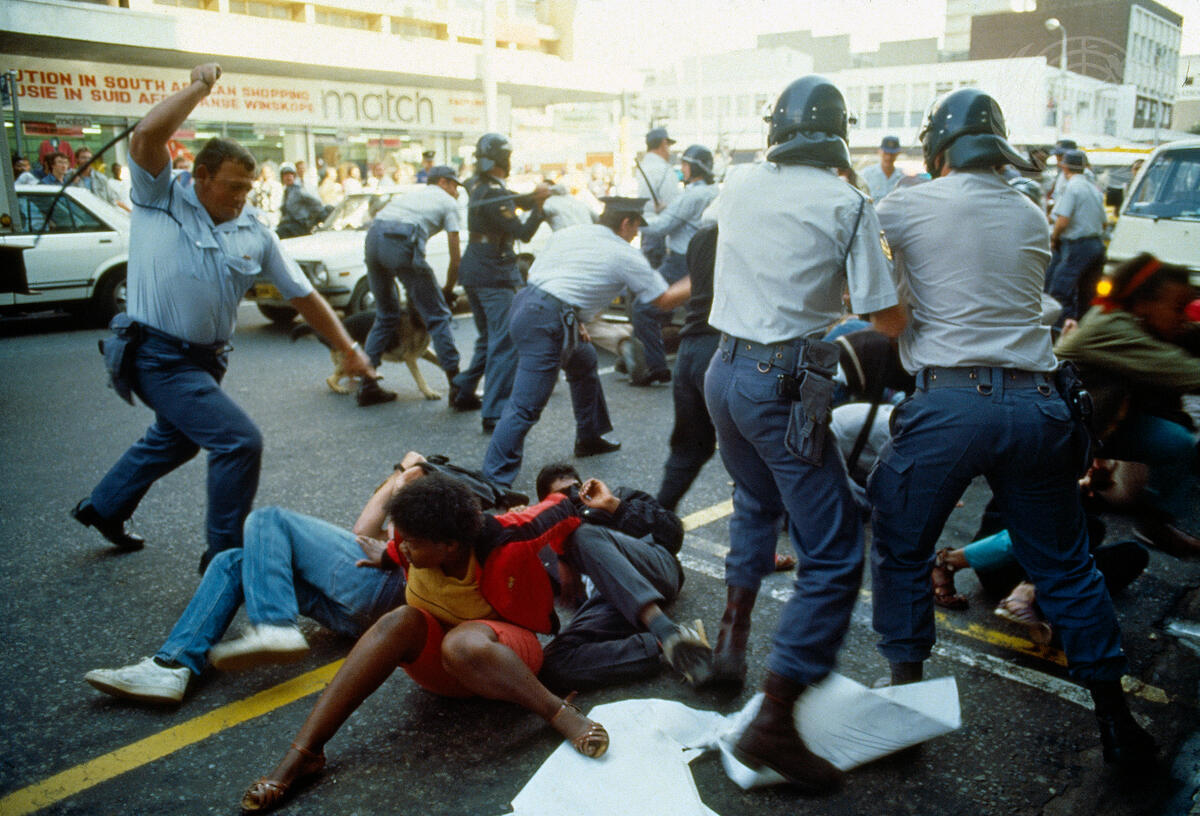
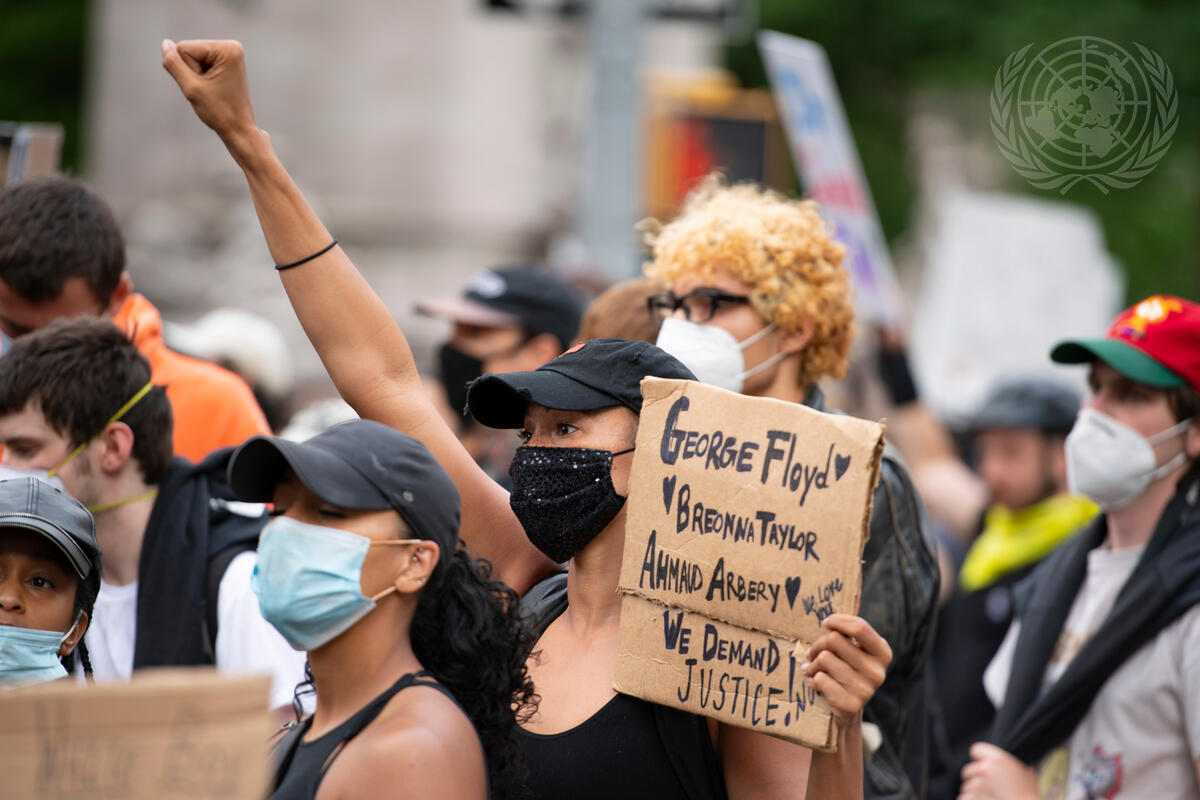
The struggle for racial justice is far from over. Left: Police in South Africa wield sjamboks against people demonstrating against apartheid in 1987. Right: Decades later, in 2020, a protest in New York City against racism and police violence following the death of George Floyd by then police officer Derek Chauvin in Minnesota.
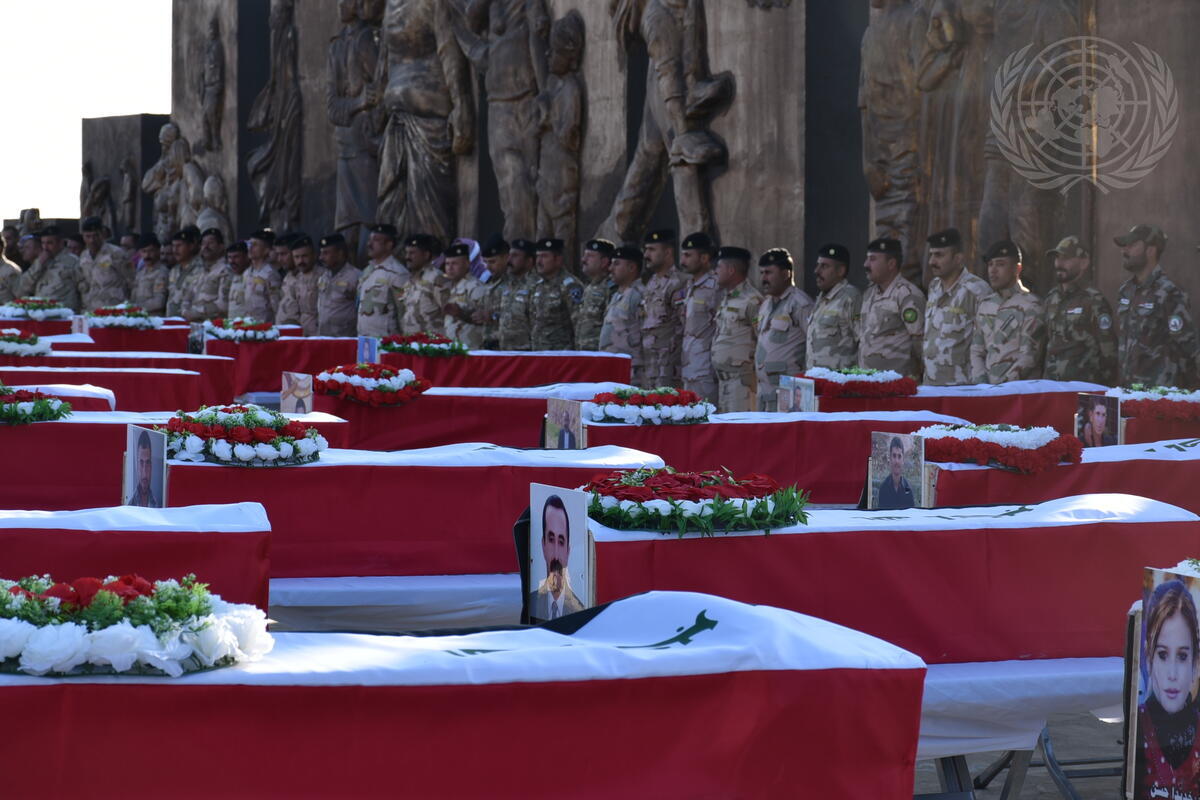
Even today people are exterminated based on their ethnicity, like the Yazidi people recovered from mass grave sites in Sinjar, Iraq in 2024.
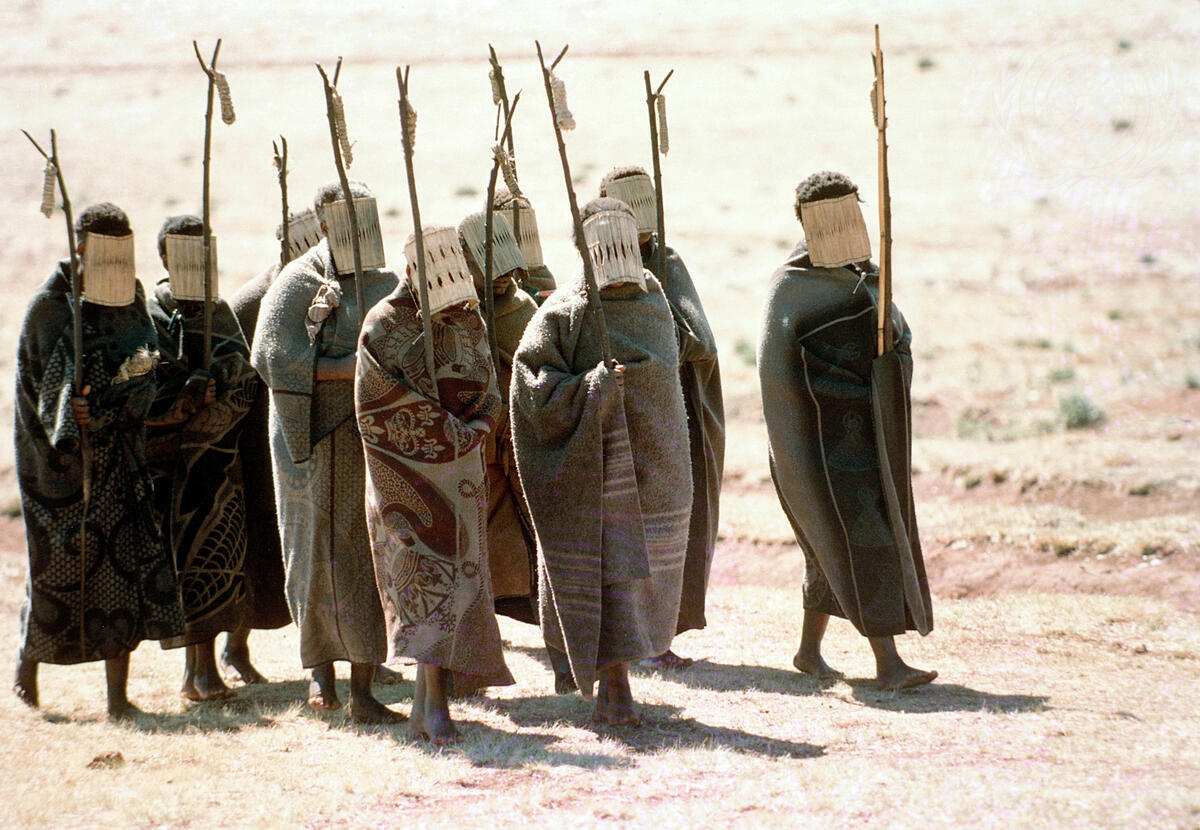
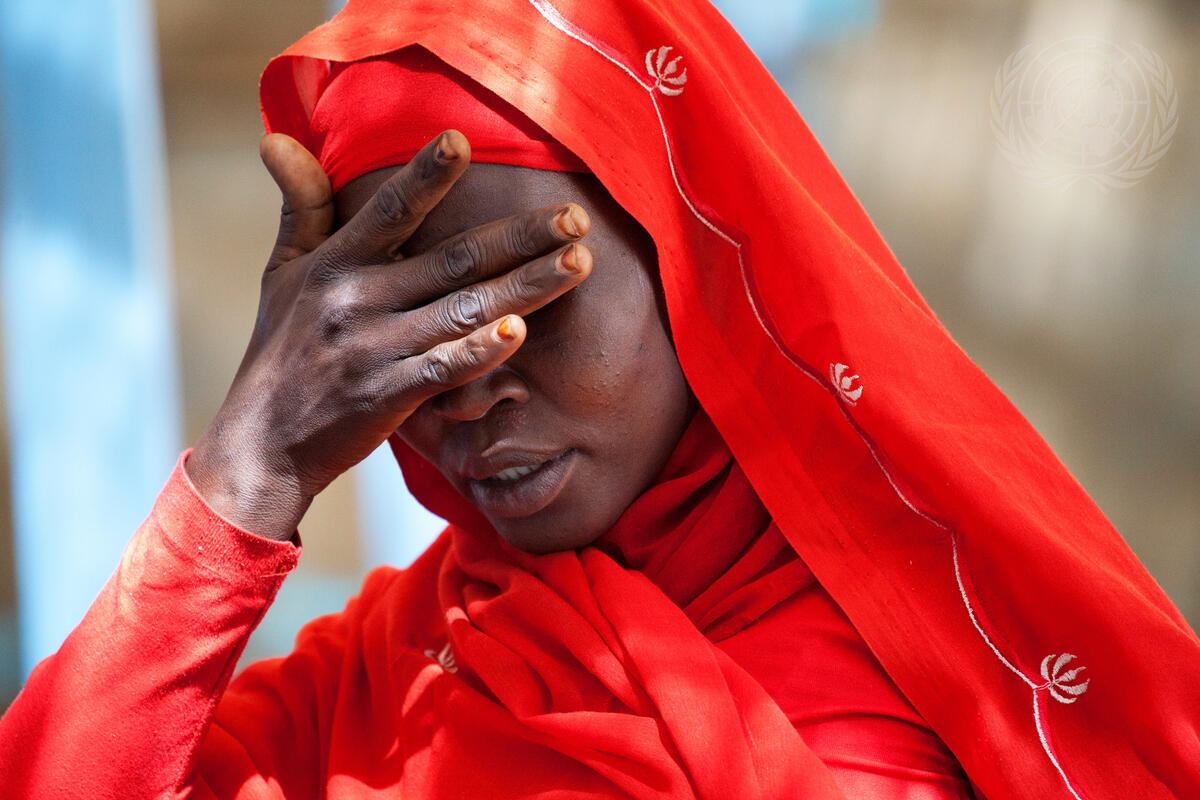
Women's bodies are violated in the name of societal norms and when rape is used as a weapon of war. Left: Women during a female circumcision ceremony in Lesotho in 1987. Right: A woman living in a camp for internally displaced people expresses sorrow at the increase in rape in Sudan in 2012.
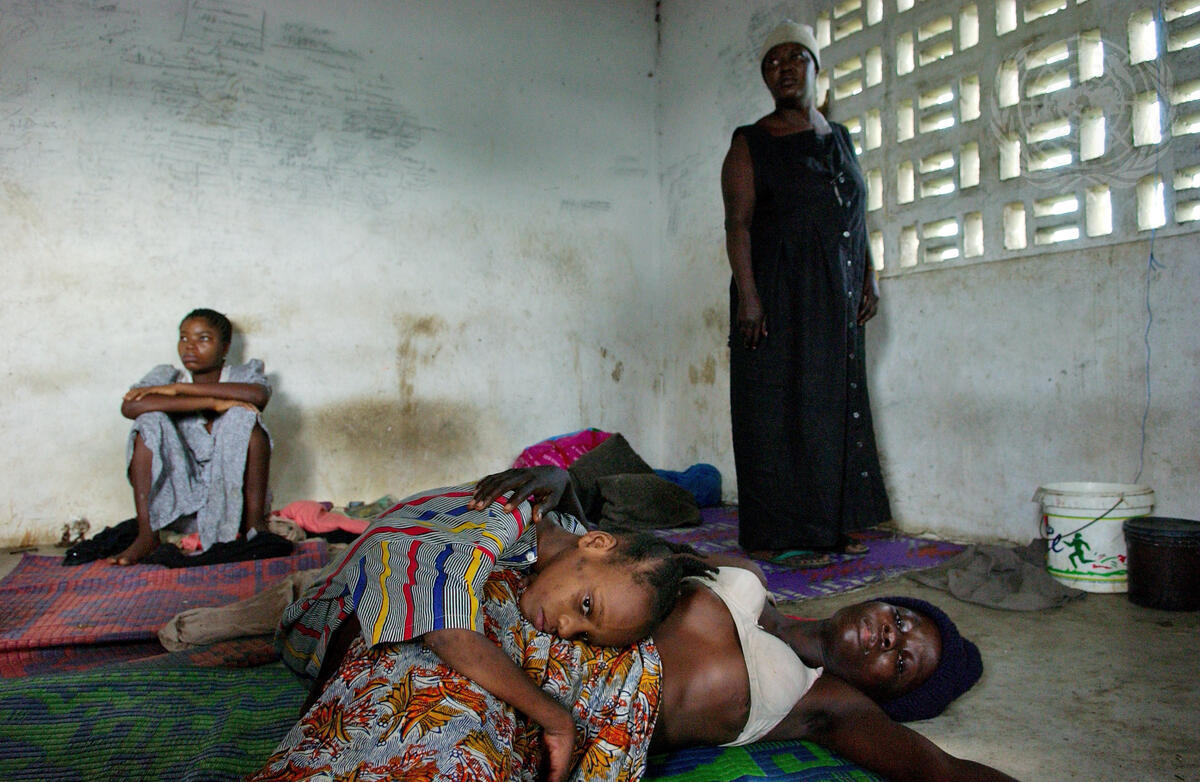
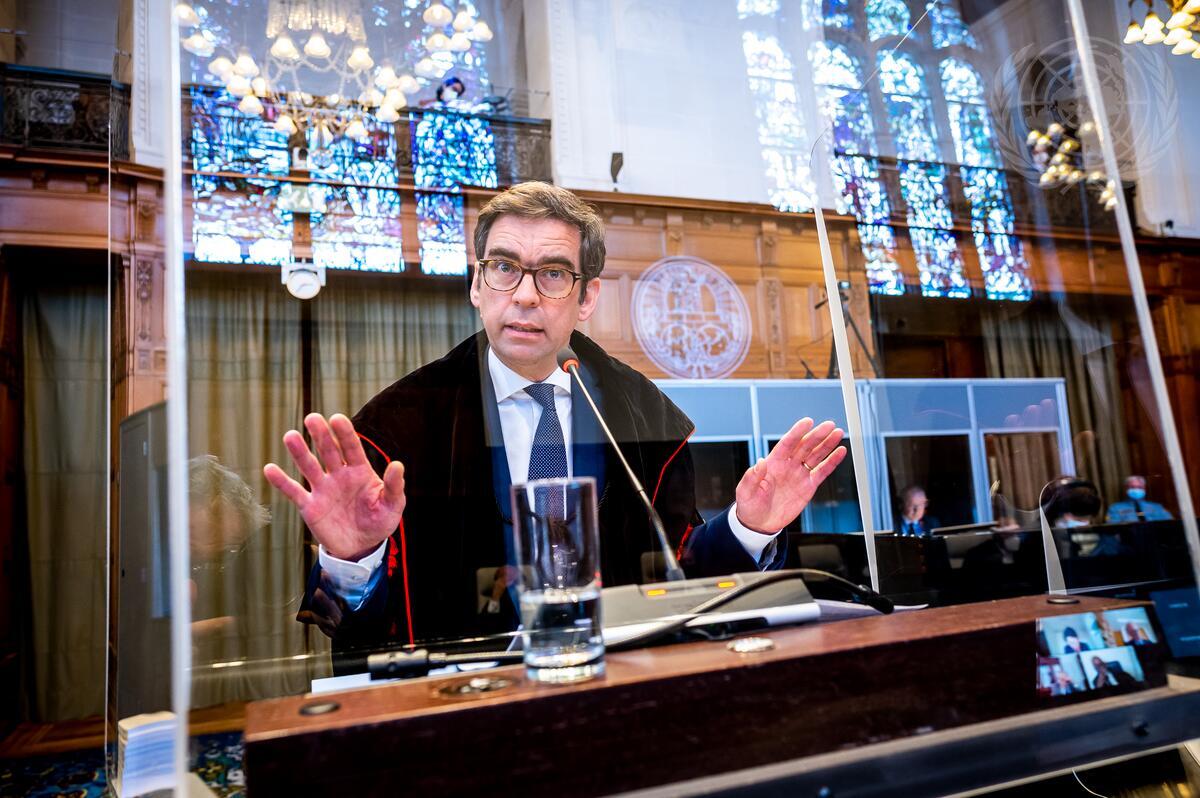
The UN is working to end injustice. Left: In 2006, the UN Mission in Liberia (UNMIL) and the Liberian National Police shut down an illegally operated psychiatric facility. Right: The International Court of Justice (ICJ) hears preliminary objections raised by Myanmar in the case concerning application of the Convention on the Prevention and Punishment of the Crime of Genocide.
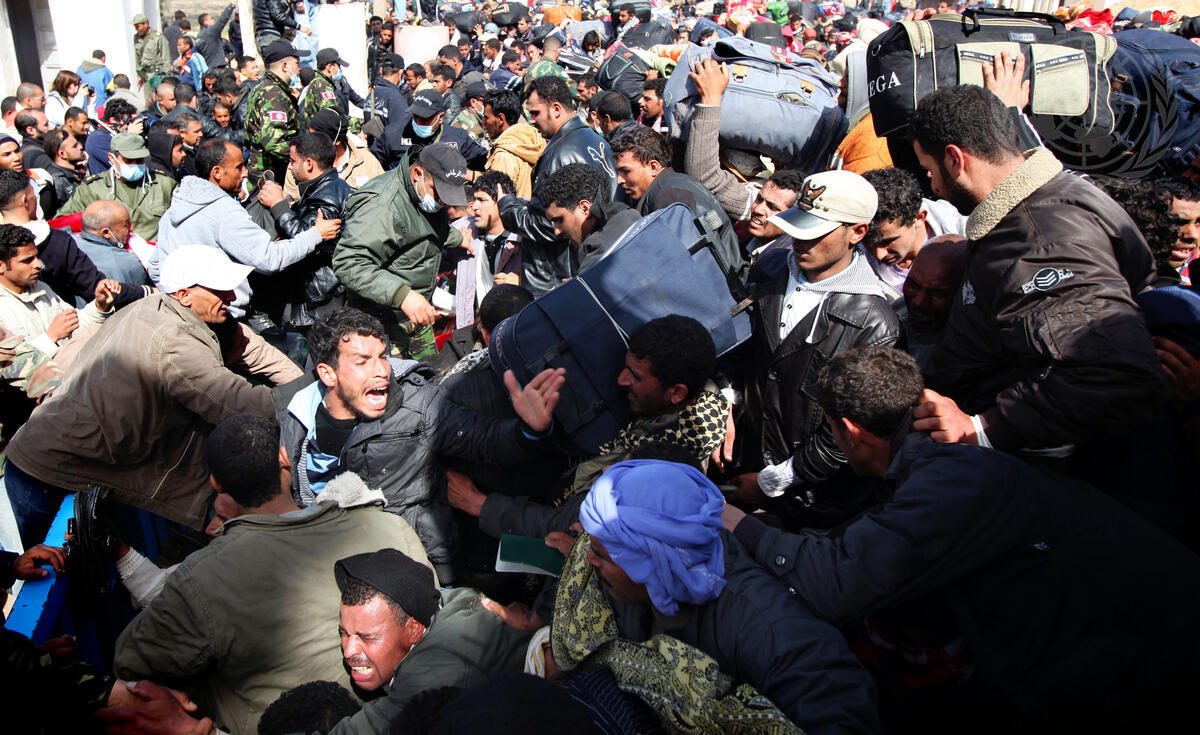
Thousands of people anxious to leave the insecurity of Libya inch closer toward the Tunisian border and toward immigration and custom officials in 2011. The right to flee violence within or to another country and to return home once peace settles is enshrined in the Universal Declaration of Human Rights.
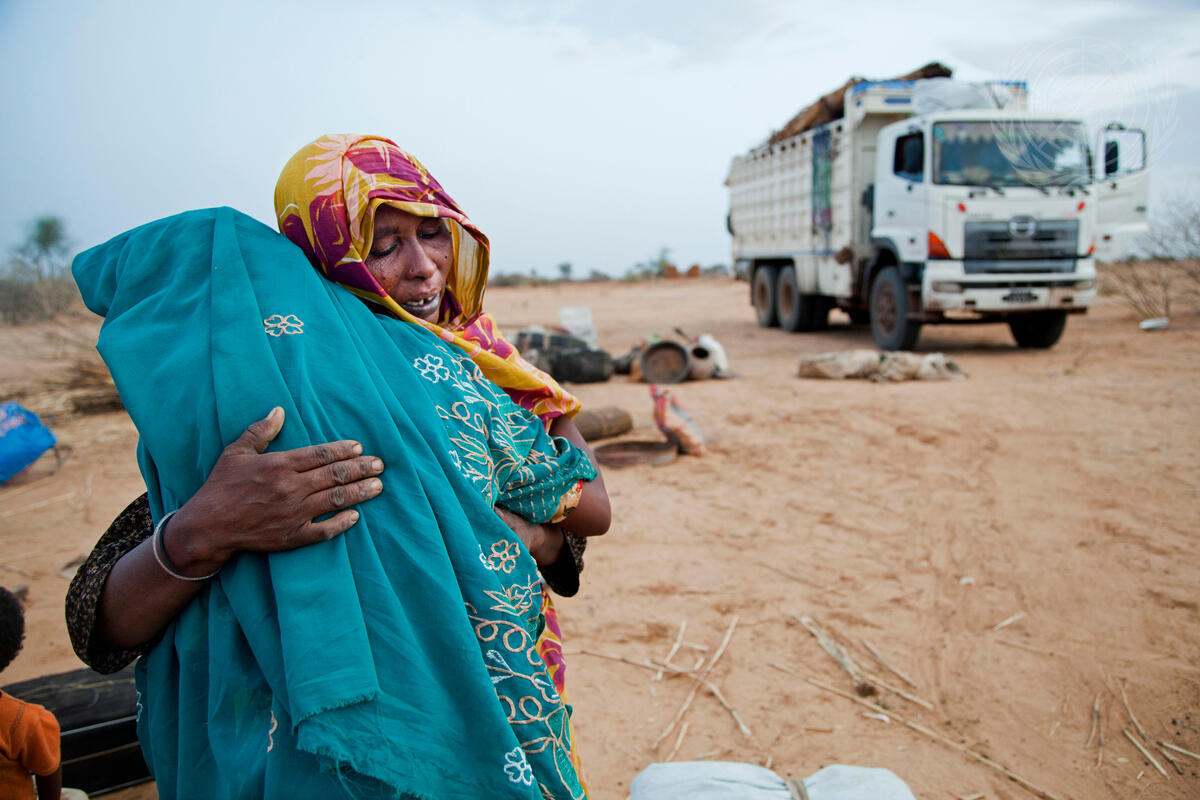
People return to their village in 2011 after living in a camp for internally displaced persons in Sudan for seven years.
Where, after all, do universal human rights begin?
In small places, close to home ... Such are the places
where every man, woman and child seeks equal
justice, equal opportunity, equal dignity without
discrimination. Unless these rights have meaning
there, they have little meaning anywhere.
~ Eleanor Roosevelt
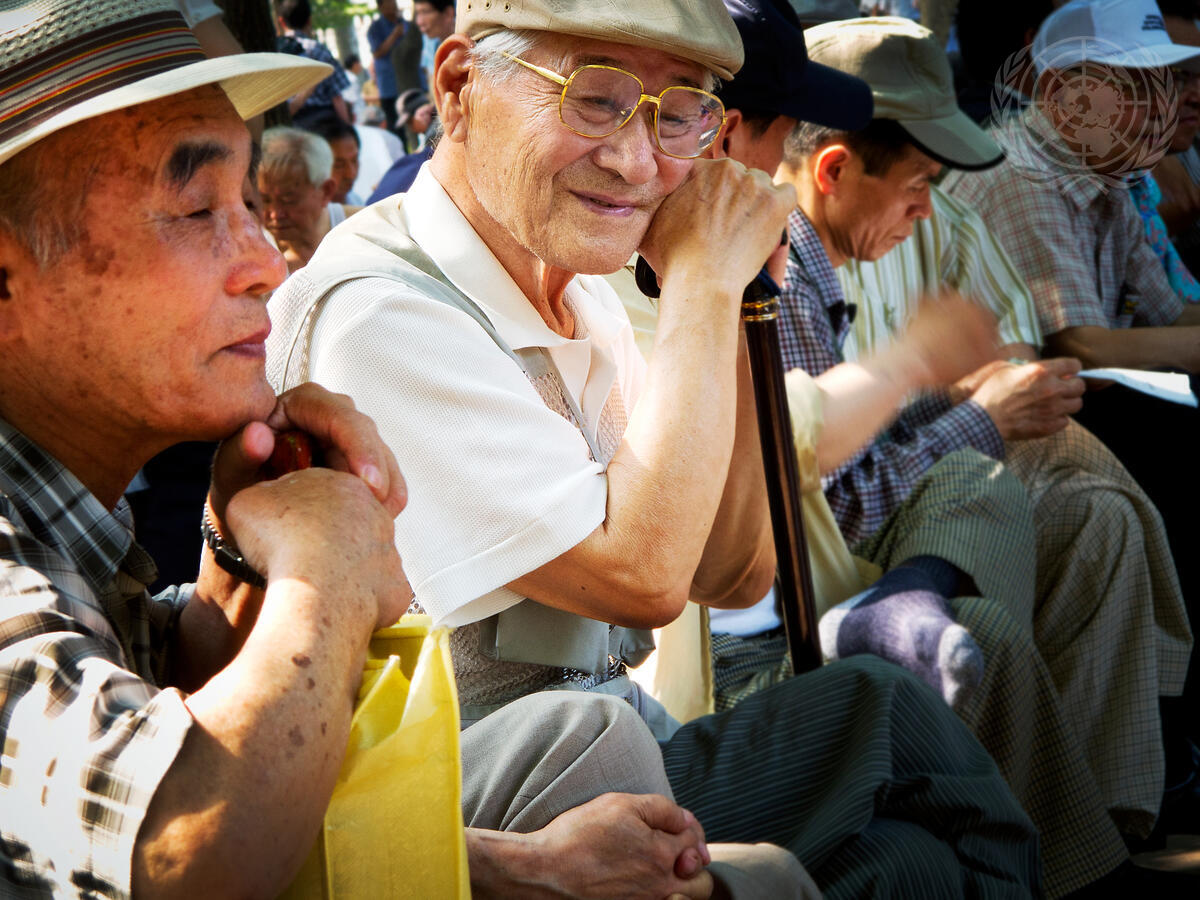
Freedom of thought, conscience and religion enables people to feel safe within their own society. Seniors in conversation at Jongmyo Park, in downtown Seoul, Republic of Korea.
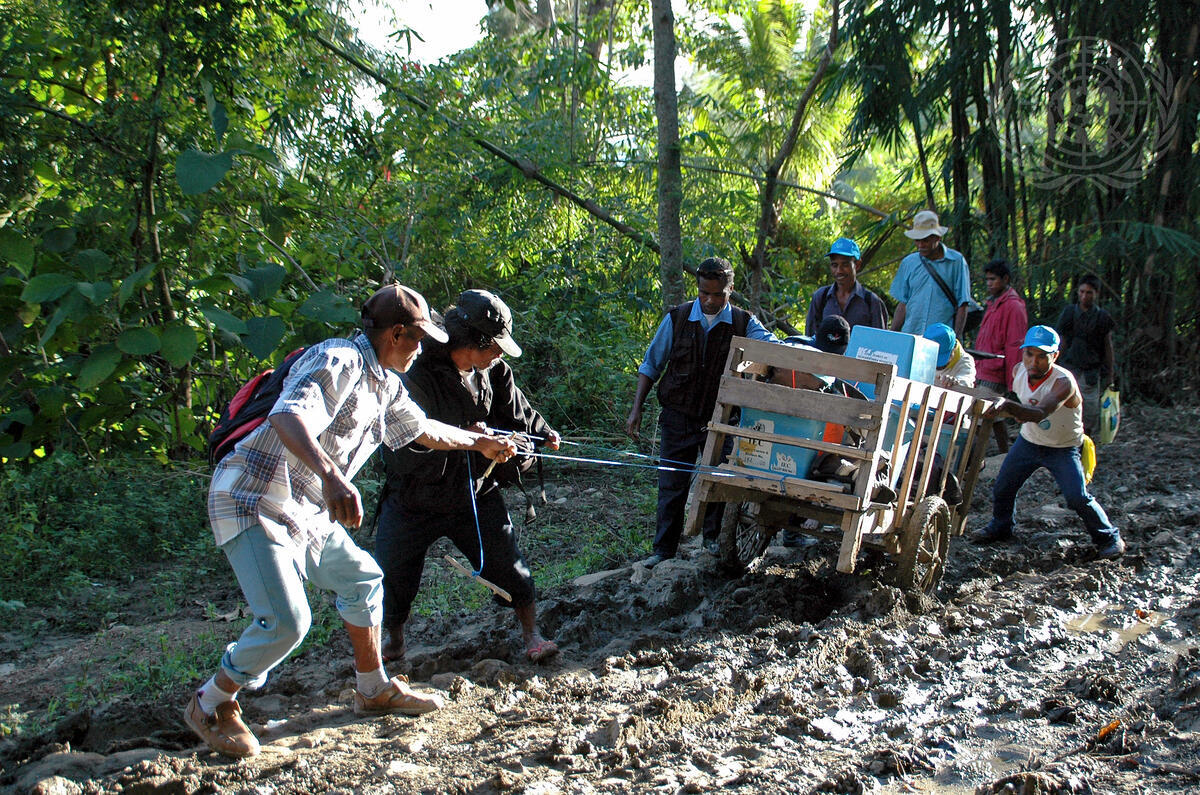
Everyone has the right to participate in one’s government, directly or through freely chosen representatives. Electoral officers in Timor-Leste drag a cart full of ballot boxes for distribution in remote communities in 2007.
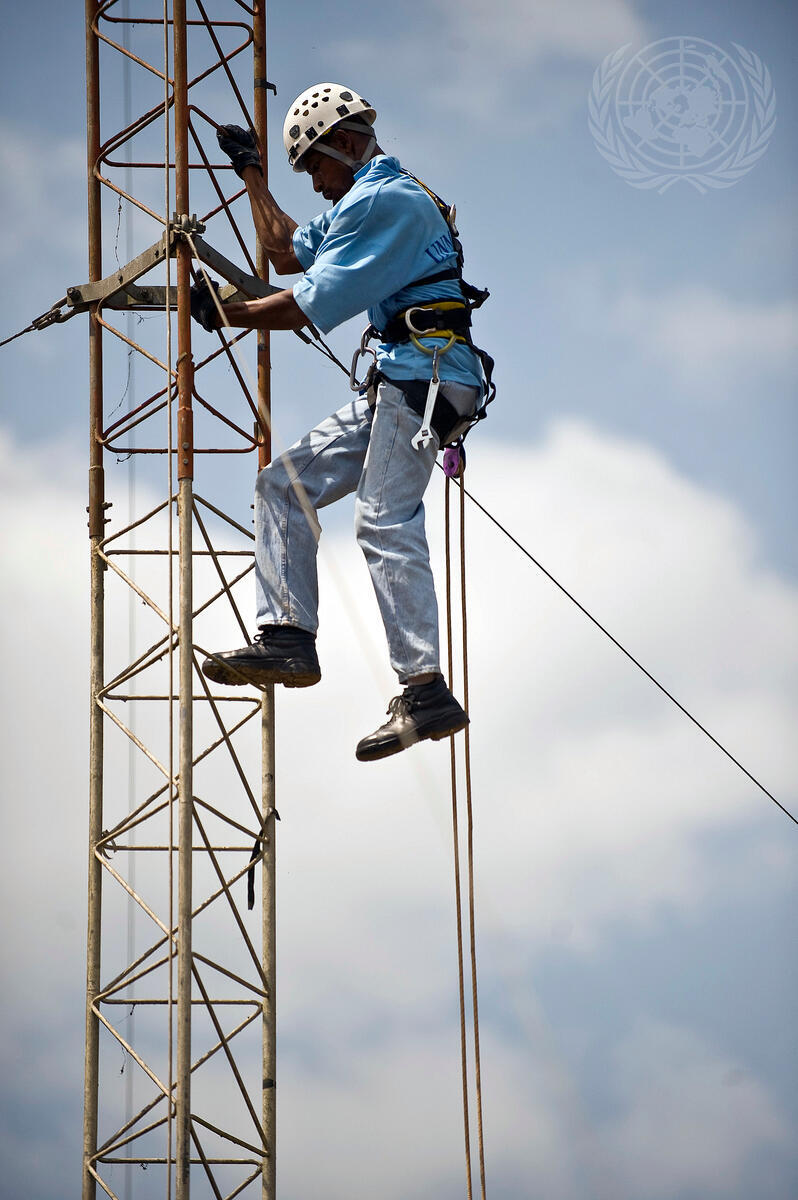
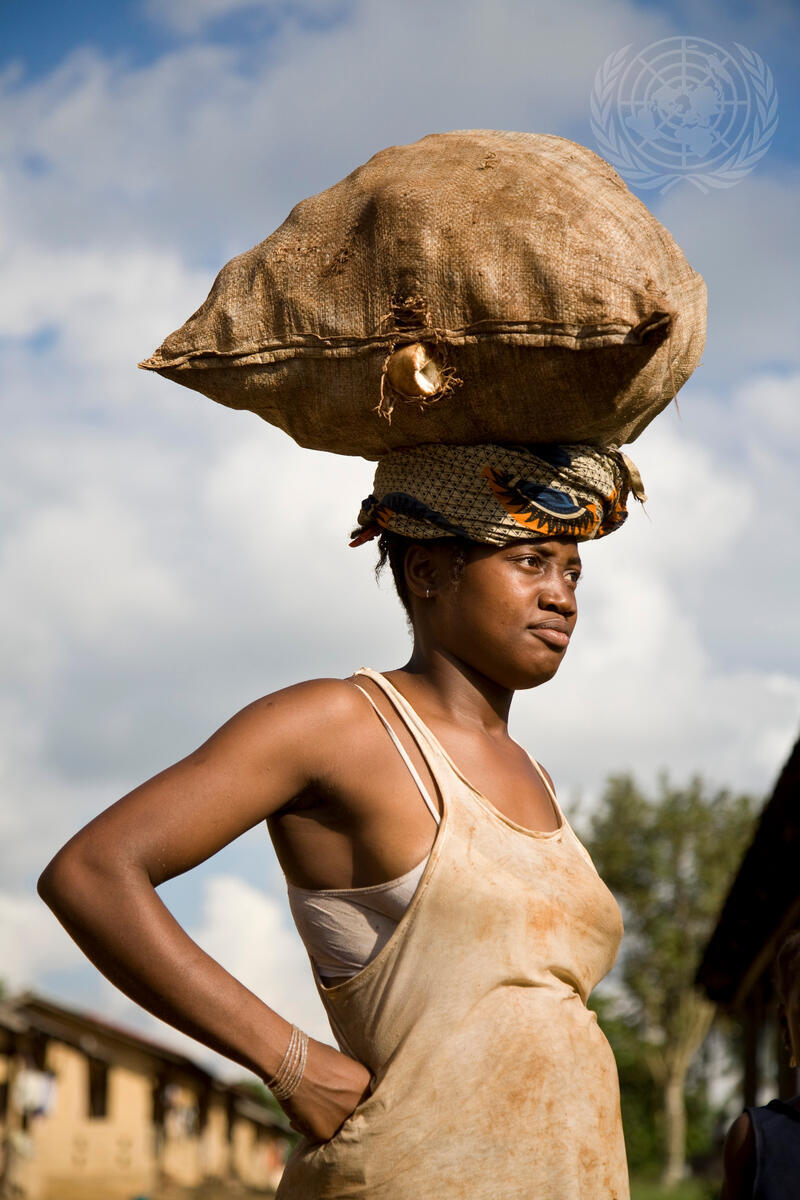
The opportunity to have a decent livelihood paves the way for safeguarding other rights, like gender equality and the right to food. Left: An electrical technician works on a radio tower in Bomi County, Liberia. Right: The Ganta Concern Women's Group built the first women-owned cassava processing plant and developed 10 community farms.
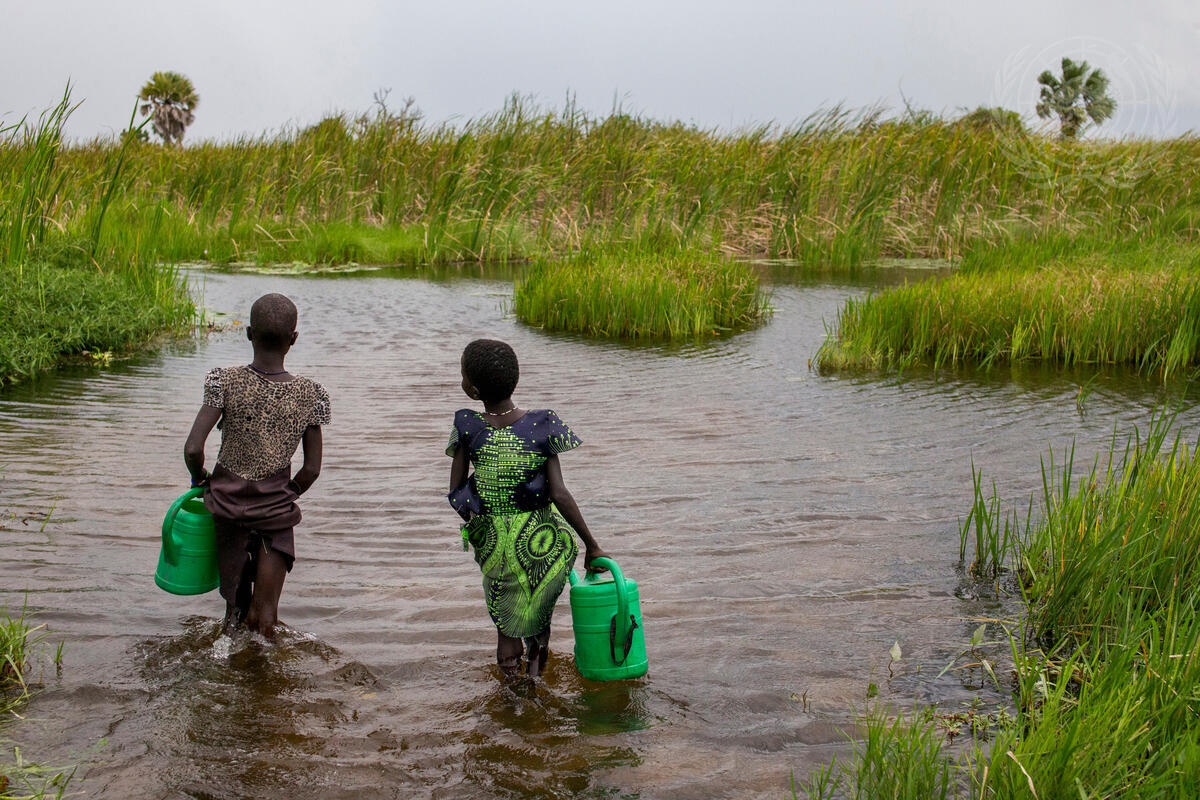
And all humans have the right to an adequate standard of living, including clean water and a healthy natural environment.
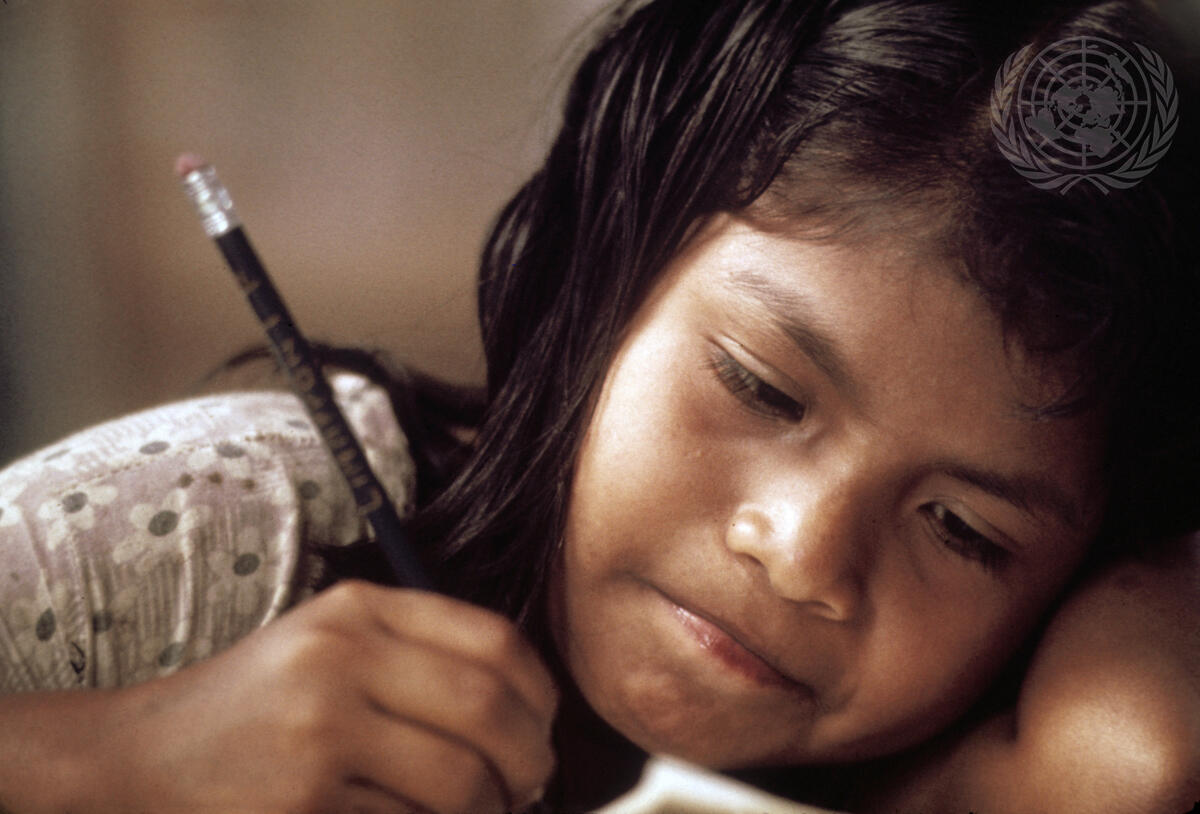
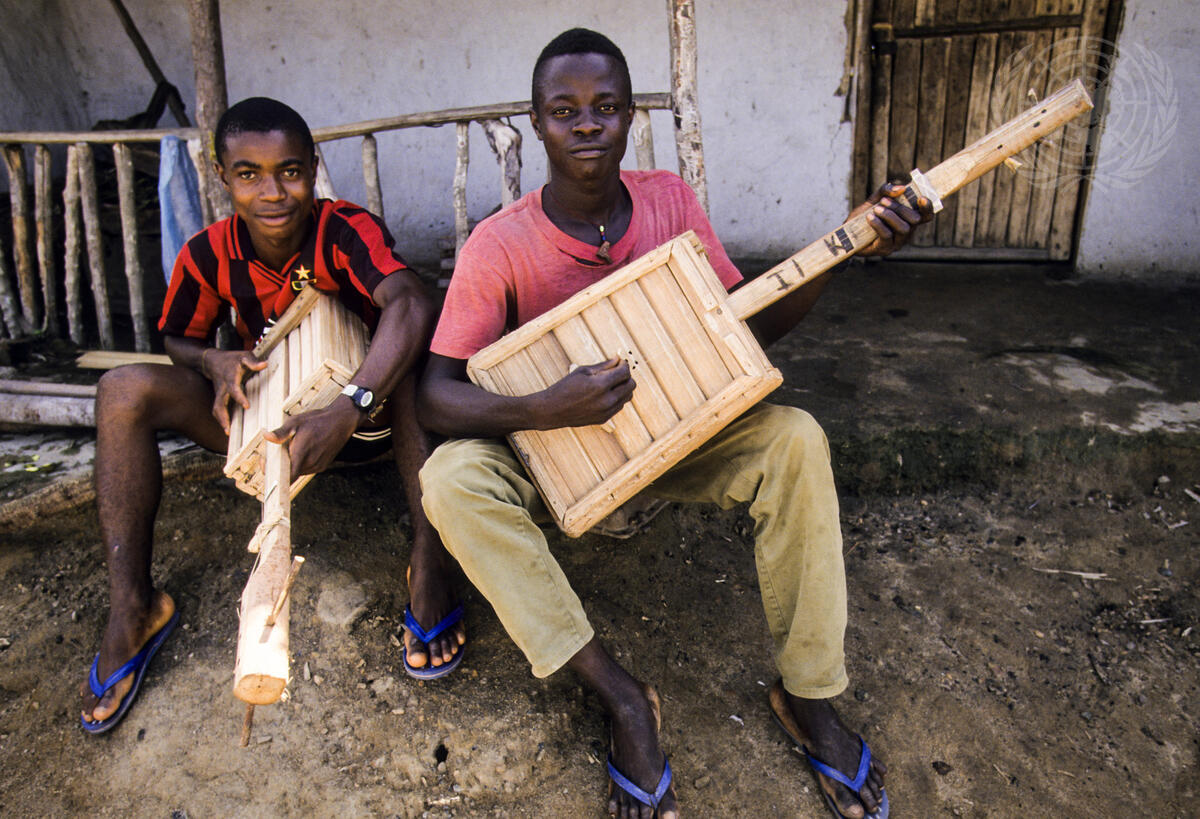
Education and the right to participate in the cultural life of one's community are crucial to the development of human potential. An indigenous schoolgirl (left) in Equador in 1976 and two young men (right) with hand-crafted musical instruments living in a refugee camp in Borkeza, Liberia in 1988.
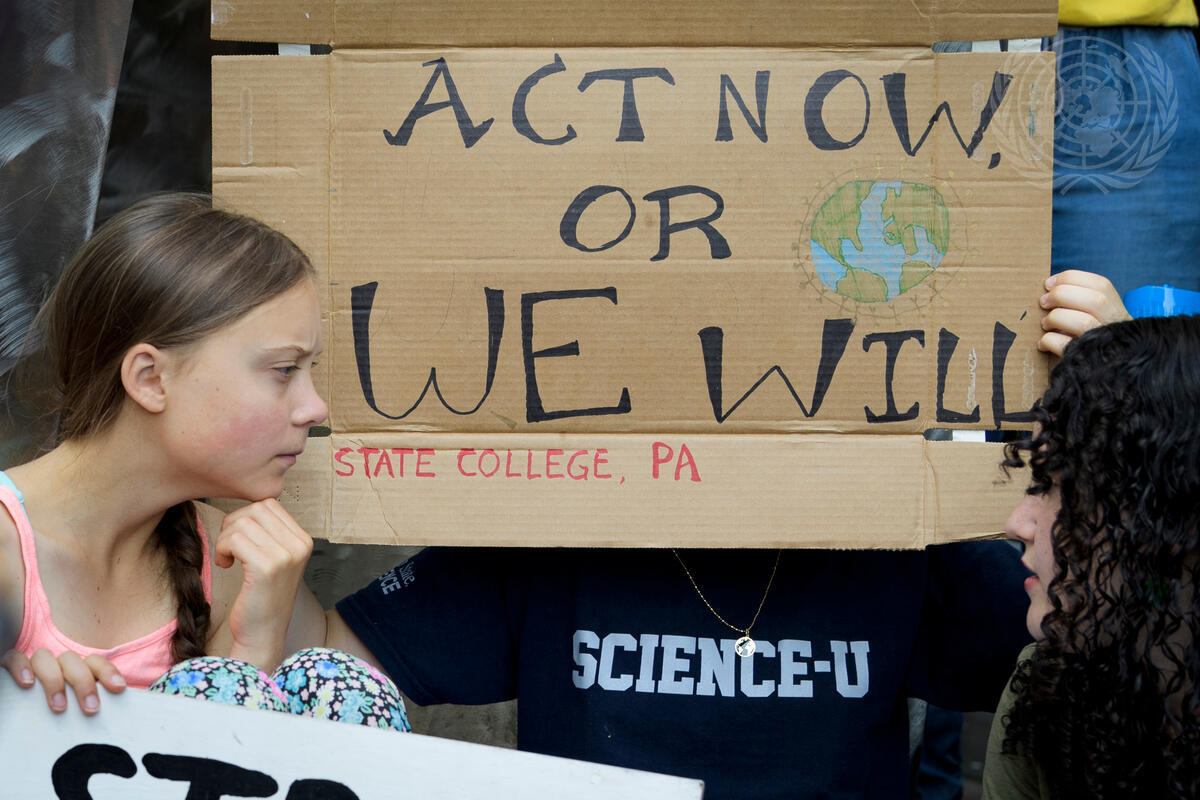
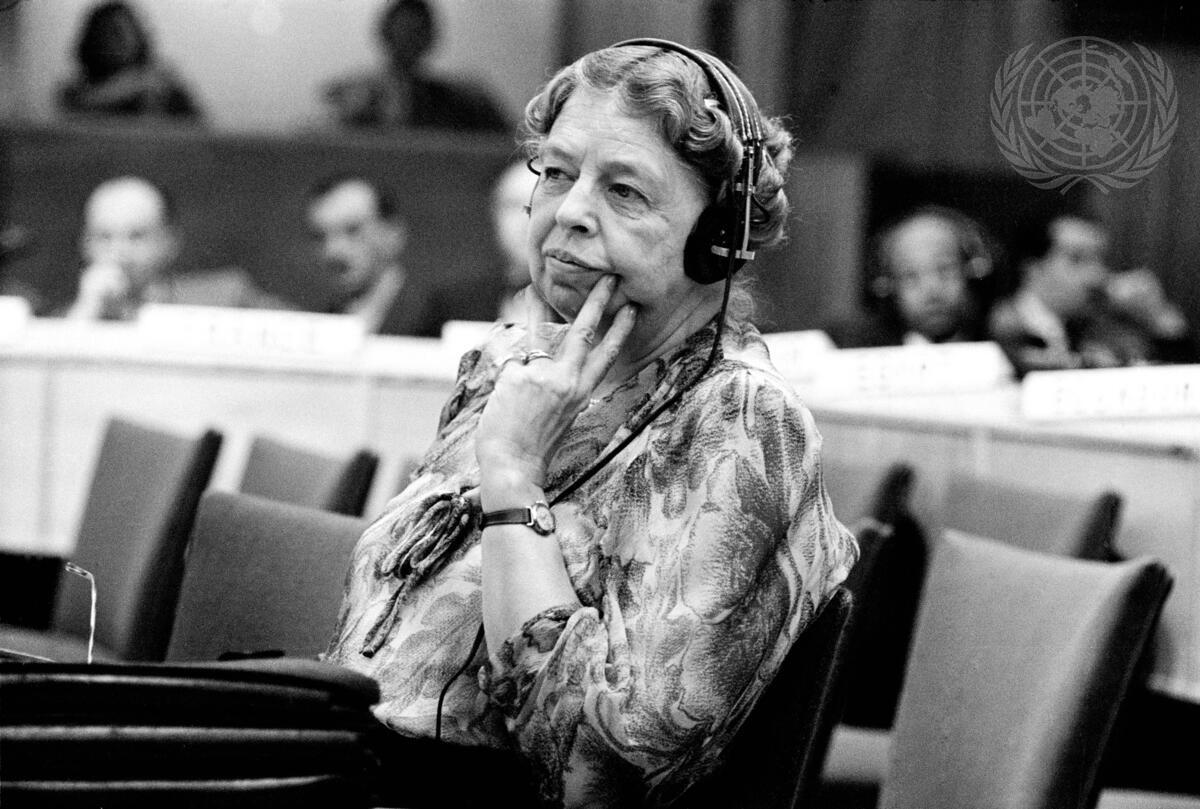
Left: Greta Thunberg advocates for a sustainable future for humanity and all life on Earth. She and other rights defenders stand on the shoulders of giants, building on the achievements of previous generations. Right: Eleanor Roosevelt.
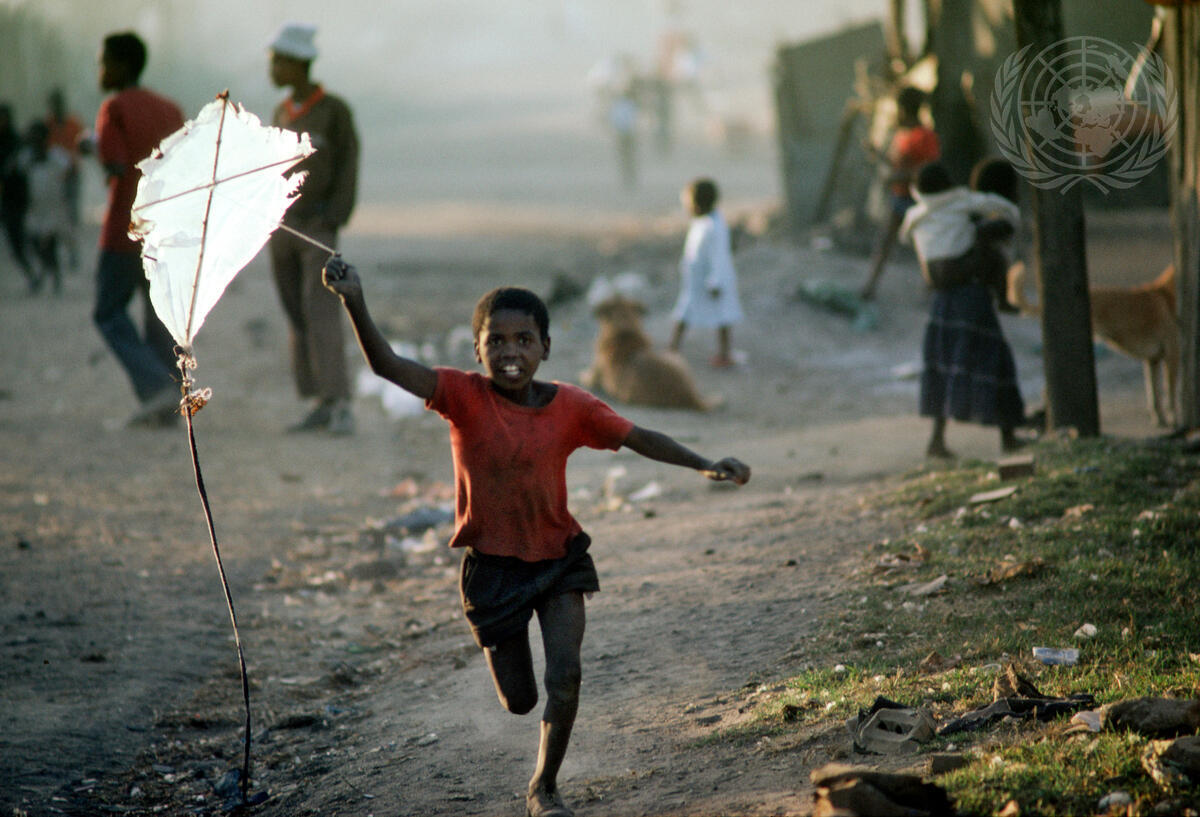
The Universal Declaration of Human Rights, although not a legally binding document, serves as a guide, a blueprint, and a hope for a better future for all. A boy plays in Alexandra, a black "township" on the far outskirts of Johannesburg during the apartheid era in 1982.
The UN Photo Library holds an extensive collection of images documenting the work of the United Nations. For detailed information on the images in this photo essay, follow the links below. Images are listed in order of appearance: UN7395688, UN Photo/Eric Kanalstein; UN7771715, UN Photo/Peter Mugubane; UN7860594, UN Photo/Evan Schneider; UN71073681, UN Photo/UNITAD; UN7720972, UN Photo/John Isaac, UN7355346, UN Photo/Albert Gonzalez Farran, UN7709906, UN Photo/Eric Kanalstein; UN7923907, UN Photo/Frank van Beek; UN7388236, UN Photo/UNHCR/Alexis Duclos; UN7366515, UN Photo/Albert Gonzalez Farran; UN7345393, UN Photo/Kibae Park; UN7701732, UN Photo/Steve Tickner; UN7525173, UN Photo/Christopher Herwig; UN7646722, UN Photo/Christopher Herwig; UN7125078, UN Photo/JC McIlwaine; UN7539215, UN Photo/A. Jongen; UN754680,: UN Photo/John Isaac; UN736766, UN Photo/Manuel Elías; UN775770, UN Photo/Kari Berggrav; UN7741144, UN Photo/DB.
